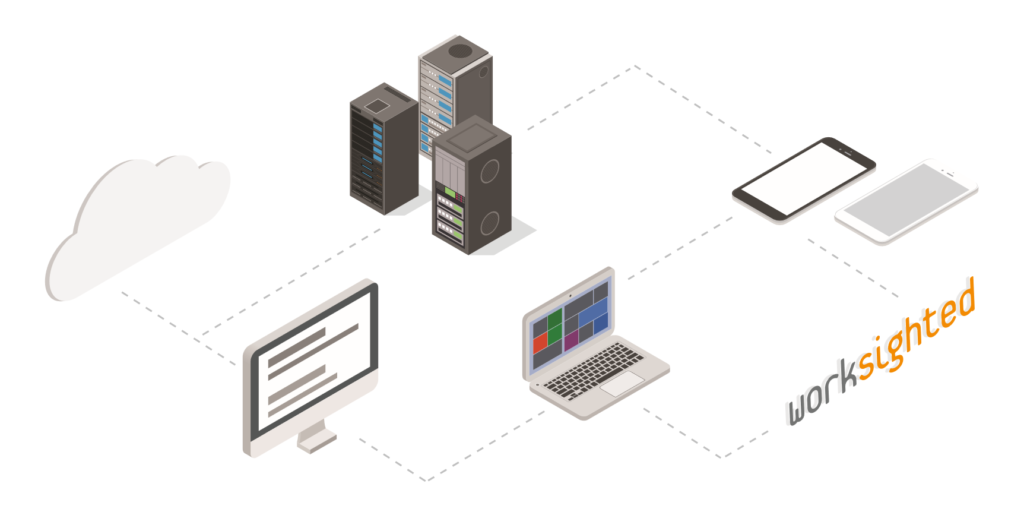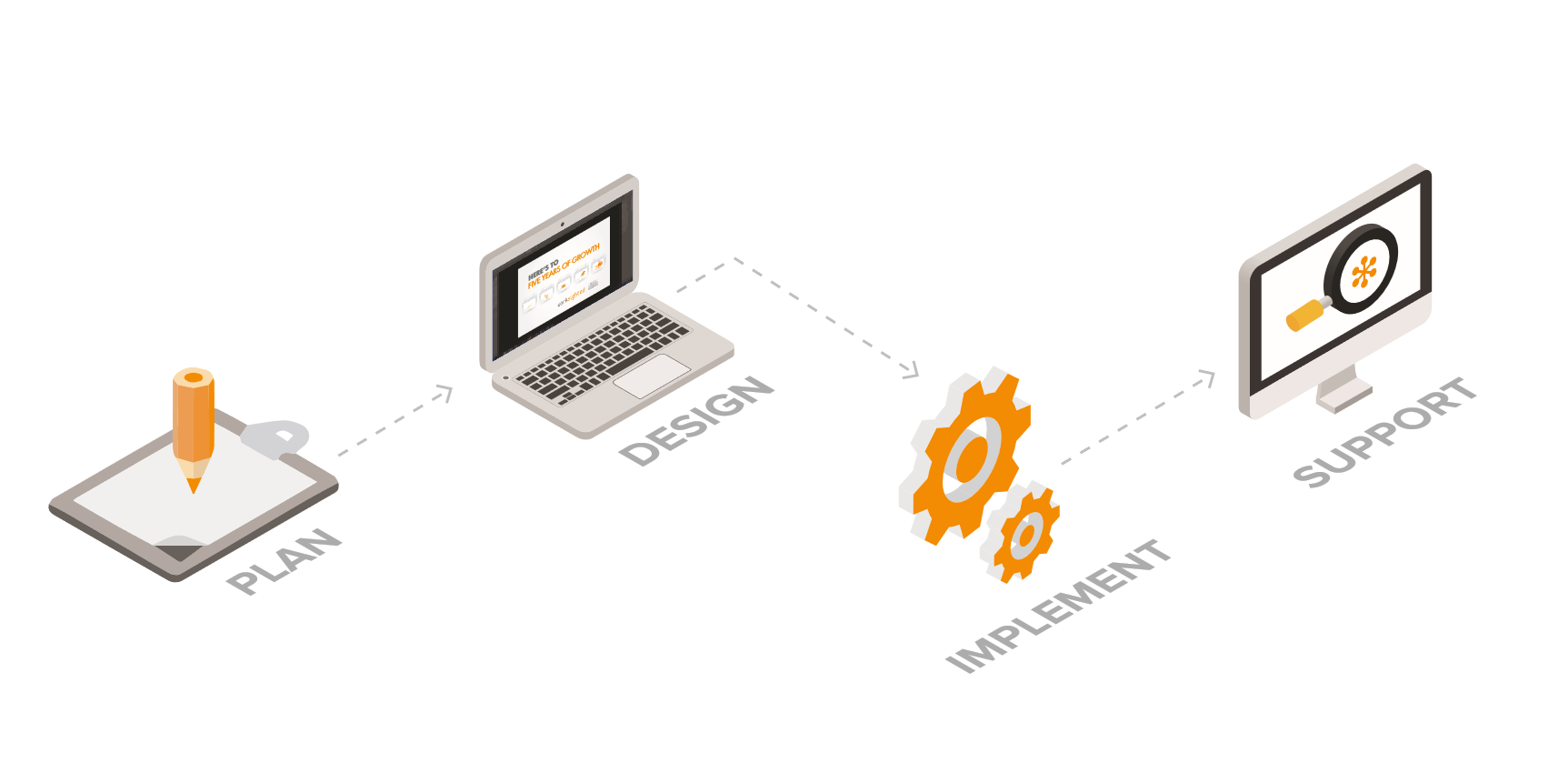Worksighted increases focus on medical records technology – GRBJ

By: Pete Daly
Grand Rapids Business Journal
Published: November 23, 2009
HOLLAND — Worksighted, an information technology company in Holland, is gearing up for a very busy 10th year in 2010, thanks in part to the American Recovery and Reinvestment Act and the push to control the cost of health care.
Until August, the small business started in 2000 by college students Mat Nguyen and Mike Harris was located in the Lumir Building at 6th and Central. Now the firm, which has grown to 11 employees, has moved two blocks to much larger quarters on 8th Street — and it has acquired a new division: IT for Doctors.
The plans at hospitals and physicians’ offices to change to electronic medical records are a “huge trend right now,” noted Nguyen, fueled not just by the incentives but also by new mandates by the federal government, which take effect in 2015.
The stimulus bill includes a $19 billion investment to spur a transition to computerized medical records that will help reduce health care costs and improve quality while ensuring patients’ privacy, according to the whitehouse.gov Web site.
Under the Health Information Technology for Economic and Clinical Health (HITECH) section of the ARRA, hospitals and health care providers can receive incentive payments from Medicare and Medicaid if they demonstrate “meaningful use” of a government-certified electronic health record system in their business.
For each doctor who treats a certain number of Medicare patients, the incentive grants can total as much as $44,000, paid over a five-year period starting in 2011, according to Robert Tennant, who founded IT for Doctors and is now working in partnership with Worksighted.
“It doesn’t matter whether they’ve already purchased a system,” said Tennant. “They can still qualify for that money by showing meaningful use, even if they purchased it five years ago.”
But the majority of physicians’ offices are still using paper records. Tennant said he would guess that somewhere between 25 and 40 percent of West Michigan doctors have an EHR system in place. Throughout the nation, he said, it’s probably less than 20 percent.
The doctor who doesn’t prove a meaningful use of EHR will probably regret it. According to whitehouse.gov, “Starting in 2015, providers are expected to have adopted and be actively utilizing a certified EHR in compliance with the ‘meaningful use’ definition or they will be subject to financial penalties under Medicare.”
“The focus on meaningful use is a recognition that better health care does not come solely from the adoption of technology itself but through the exchange and use of health information to best inform clinical decisions at the point of care,” states the Web site.
Tennant said the specific definition of “meaningful use” will be published by the federal government late this year, but he said there is a general idea of what it will mean.
“It has to do with using their EHR system for prescribing medications, clinical decision support,” and interfacing with IT systems at other locations, such as testing labs, he said.
“I would say it’s motivating a lot of physicians to start looking a lot more seriously at moving to electronic health records,” said Tennant.
Resistance to an EHR by doctors would probably be related to the cost of implementing it, and the fact that some would not be comfortable with “how it changes their work flows and work habits,” said Tennant. For example, it might take a doctor or his staff longer to retrieve needed information from an EHR until they are familiar with it.
“My goal is to help them integrate (EHR) and make it a positive outcome rather than a negative outcome — or at least a break-even,” he said.
Updating health records at the end of the business day can actually go a lot faster when the physician’s office has the right equipment and software, and sufficient training in its use, he said.
“The staff is very burdened in a physician’s office,” which Tennant said is “just full of paper,” with “an awful lot of work just to shuffle the paper and find things you’re looking for. We believe that technology can help that quite a bit — help the staff stress level come down.”
Tennant, who founded IT for Doctors in 2000, had a business in Holland before that called On Track Micro Systems, which at one point in the 1990s employed more than 20 people. When he decided to focus on serving doctors’ offices exclusively, he downsized to the current three-person staff.
Tennant said IT for Doctors has mostly served West Michigan health care professionals, but he has had business projects in Detroit and northern Michigan and one in Indiana. He now has a new business entity called Better EHR, and he plans to expand his firm’s geographic market.
Better EHR is housed in the same building with Worksighted, and although the two companies share some of the same clients, each is an independent operation.
“We do partner together to support the health care clients,” said Tennant. “We work really closely on a daily basis.”
Worksighted and its IT for Doctors division concentrates on the computer hardware and network, while Better EHR concentrates on support of the health records software, according to Tennant.
Tennant developed a training game — the Better EHR Game — which managers at physicians’ offices use to simulate use of the EHR software.
“A lot of what we are talking about doing here requires a lot of change management — doing things new and differently. Those are the big obstacles we need to overcome,” said Tennant. “It’s not a matter of installing software and turning it on, because we really have to change how we do things when we go from paper to electronic.”
He said it takes months for a physicians’ office to develop “meaningful use” of an EHR system. “It’s going to take them a while, especially if they don’t have an electronic health records system today,” said Tennant.
Nguyen said he has known Tennant for years, and the two of them starting talking about joining forces early this year.
Nguyen said health care applications used to be about 1 percent of Worksighted business, but since the merger with Tennant, it is now from 10 to 15 percent of the Worksighted workload. About 30 percent of the firm’s business is for professional services, which would include law firms, architects, construction and engineering firms. About 10 percent is related to manufacturing.
Worksighted, owned by Nguyen and Harris, has “done really well” since it was founded, although Nguyen does not reveal the firm’s annual sales volume.
“We have never had to lay off anyone,” said Nguyen. “That’s something we are really proud of.”
According to Nguyen, a major trend in small business IT that keeps Worksighted busy is the growing demand for remote backups and fast disaster recovery capability, in the event a company’s IT system is destroyed by a fire or other disaster.
Nguyen said the tough economic times seem to have more companies spending greater time on a careful strategic plan involving their IT investments. He said replacement of computers and servers isn’t as frequent as it is when the economy is booming. Now, small companies are trying to “stretch it out more” on use of existing hardware, “and doing so increases the risk of equipment failure. So they’re making a compromise” by thinking more about backups.
There are a lot more viable backup solutions for small companies now, too, including commercial server installations in other states that likely wouldn’t be affected by a natural disaster in West Michigan.
“I’m talking about servers in other states out West, and these backups happen automatically every night, so we don’t have to teach people anymore how to swap backup tapes every night, and then make sure they take the tape home or offsite,” he said.
Despite the recession, Worksighted has been holding its own, according to Nguyen. They have felt it, however, by companies that have had to downsize.
“I honestly cannot remember a single customer we’ve had that has left us because of poor quality or anything like that. Every one we signed on … from day one is still with us. We’ve only been affected by their shrinkage, not by them leaving us,” said Nguyen.






